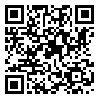BibTeX | RIS | EndNote | Medlars | ProCite | Reference Manager | RefWorks
Send citation to:
URL: http://ijme.tums.ac.ir/article-1-105-en.html
Telling the truth to patients is a key issue in medical ethics. Today, most physicians hold that truth-telling to patients is crucial, and that lying to patients or withholding information from them is not acceptable. It seems, however, that absolute and unconditional truth-telling is not always possible, and it may not be feasible to tell some patients certain truths under some circumstances. Although truth-telling is a rudimentary principle in ethics, it is allowed to withhold truth or even to tell lies in some circumstances. From the point of view of reason and tradition, lying under certain circumstances is allowed for instance when one is disinclined to tell the truth, or in emergencies where truth-telling might lead to loss of life, property or someone's reputation, and when truth may involve two adequately unpleasant situations. In my opinion, it is necessary to tell the truth, regardless of possible harms, when continuation of treatment, or the patient's cooperation and consent depend on it, and also when the truth which needs to be told to a patient is the incurability of his disease and therefore his inevitable death,. In other cases, however, when there are truths such as severity of disease, death of others in the accident, family problems outside the hospital, predicted survival time, and other possible diagnoses, the truth can be withheld and the patient can even be lied to if there is any risk of harm to the patient.
Accepted: 2013/10/8 | Published: 2014/11/15
| Rights and permissions | |
 |
This work is licensed under a Creative Commons Attribution-NonCommercial 4.0 International License. |





